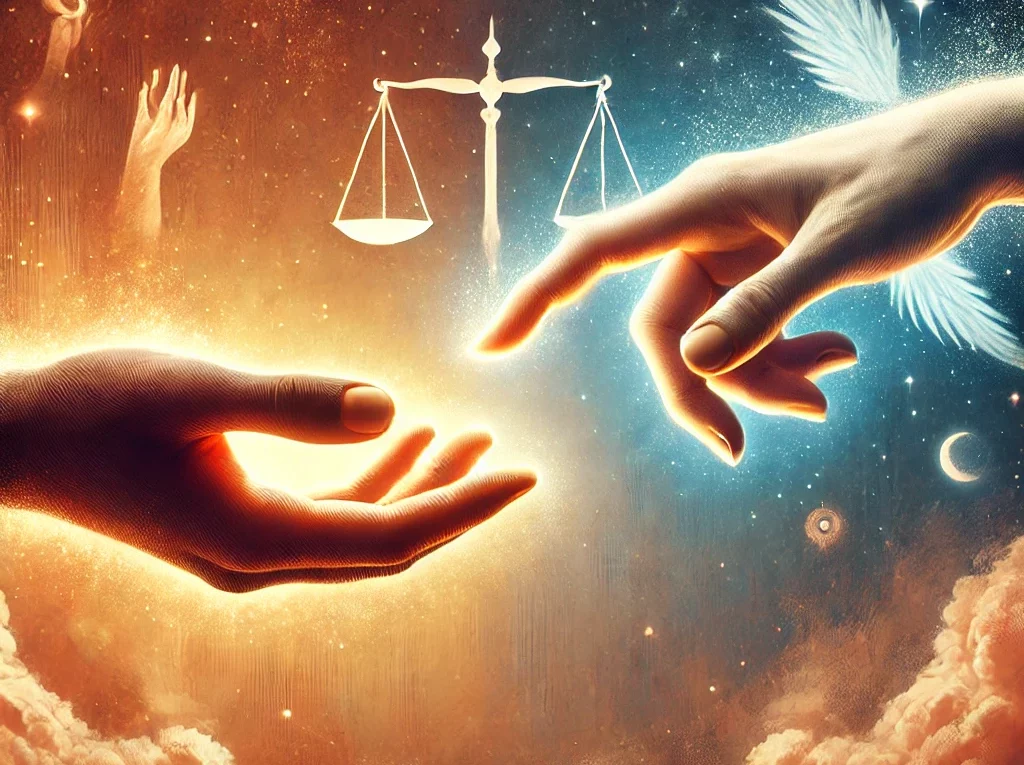Is Karma a real thing?
Ah, karma—one of those topics that sparks a lot of debate. Some people swear by it, while others roll their eyes and call it wishful thinking.
So, is karma a real thing? Well, it depends on how you define “real.”
Traditional Understanding of Karma
In its original context, karma comes from Hinduism and Buddhism, where it’s the idea that your actions—good or bad—affect your future lives.
It’s all about balance, and if you mess up in this life, you’ll pay for it in the next. This traditional view isn’t something you can prove scientifically, which makes some people skeptical.
But even if you’re not into reincarnation or spirituality, the essence of karma has found its way into modern thinking.
The idea that “what goes around comes around” resonates with most of us on some level.
Maybe you don’t believe in past lives, but you might agree that how you treat others can influence how they treat you, right?
Psychological Karma
Here’s where it gets more relatable. You might not believe in karma as a cosmic force, but you’ve likely experienced something that feels like it. Think about it: when you’re kind to someone, they often respond in kind.
If you’re a jerk, well, don’t be surprised if it comes back to bite you. There’s a name for this, actually—psychological reciprocity. It’s the idea that people tend to mirror the behavior they experience.
Smile at someone, and they’ll likely smile back. Give them attitude, and, well… you know the rest.
The Law of Attraction: A Karma Cousin?
You’ve probably heard of the Law of Attraction, which is a bit like karma’s new-age cousin. The idea is that you attract what you focus on.
Think positive thoughts, and positive things happen. Focus on the negative, and guess what? You start seeing more of it in your life. While it’s not exactly the same as karma, it shares that cause-and-effect vibe.
Whether you believe the universe is listening or not, there’s something to be said for the power of mindset. Your thoughts shape your actions, and your actions shape your reality.
Social Karma
Then there’s the social aspect. In business, relationships, or even just navigating daily life, your reputation follows you around.
If you build trust, help others, and generally put good things out into the world, people notice. That positive energy—call it karma, good will, or just plain smart networking—comes back around.
The opposite is true too. Burn bridges, and eventually, you’ll find doors closing in your face.
In the world of online marketing, this is especially true. If you consistently offer value, help others, and stay authentic, you’re likely to attract loyal followers.
But if you’re just out to make a quick buck, people can usually sense it, and they’ll steer clear. I’ve seen this play out countless times in affiliate marketing.
The most successful people aren’t just lucky; they’ve earned their success by putting in good work over time.
Is Karma More Than Coincidence?
Some folks will argue that karma is just coincidence. “I helped someone, and then something good happened to me.
Big deal—it’s a fluke.” But when it happens over and over, it starts to feel less like coincidence and more like a pattern. If you’re paying attention, you might notice that your actions do seem to have ripple effects.
Maybe you’re not being “rewarded” in a cosmic sense, but good actions often lead to good outcomes.
Take it from personal experience. I remember once helping someone out of a tricky tech problem, just because I could.
It wasn’t anything major, just a quick fix that saved them hours of frustration. Fast forward a few months, and that same person ended up recommending me for a marketing gig that turned into a big opportunity.
Was that karma?
Coincidence?
Who knows, but it felt like a little nudge from the universe.
Karma and Intent
One of the most interesting aspects of karma is that it’s not just about what you do—it’s also about why you do it.
If you help someone but expect something in return, that’s not quite the same as genuinely wanting to make their day better. Karma, in the philosophical sense, weighs your intentions.
So if you’re doing good things just to cash in on some cosmic reward, it’s probably not going to work out the way you hoped.
In online marketing, this ties back to authenticity. People can sense when you’re being genuine and when you’re just trying to make a sale.
The folks who stick around long-term are the ones who see through the noise and connect with you because you’re offering something real. That’s the kind of “karma” you want to build.
Does Karma Always Work?
Here’s the kicker: karma isn’t a guarantee. You can do everything right and still face setbacks. Life isn’t fair, and that’s just the way it goes sometimes.
But in the grand scheme of things, positive actions tend to lead to positive outcomes more often than not. Maybe not immediately, and maybe not in the way you expect, but over time.
So, is karma real? In a metaphysical sense, who knows? But in a practical, day-to-day sense, there’s something to be said for it.
Your actions, your mindset, and your intentions all seem to create ripples in your life. Whether you call that karma or something else, it’s a principle that’s hard to deny.
What Do You Think?
Do you believe in karma? Have you ever experienced something that made you think, “Yep, that’s karma coming back around”?
I’d love to hear your thoughts, so drop a comment below. And, as always, I appreciate your feedback!
Visited 46 times


